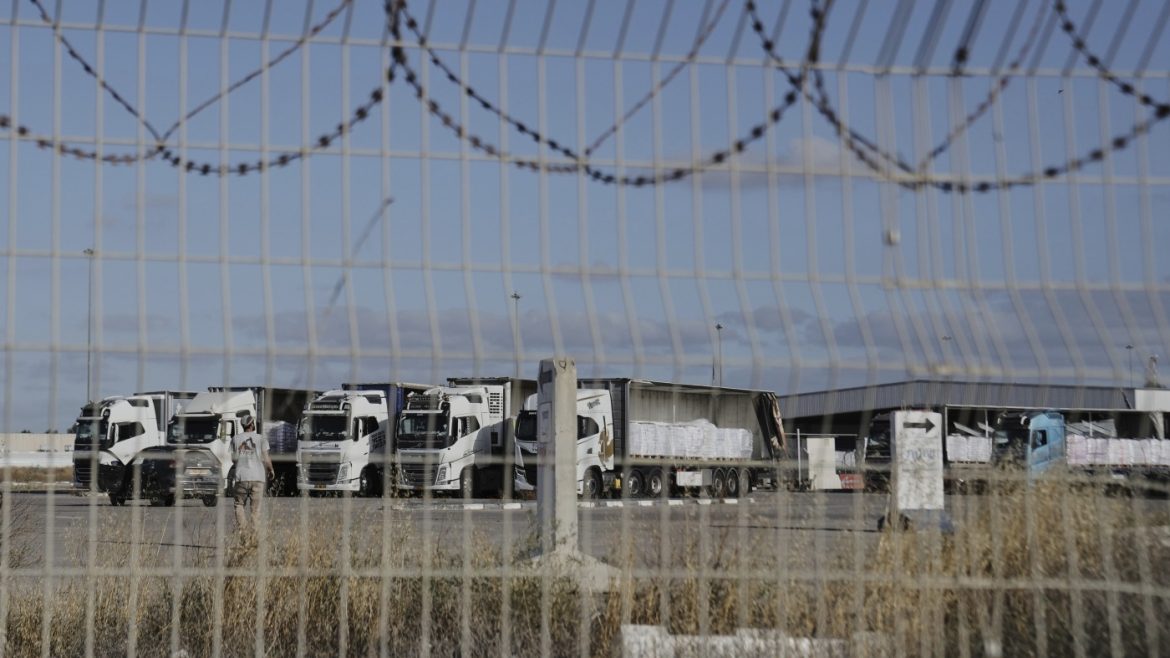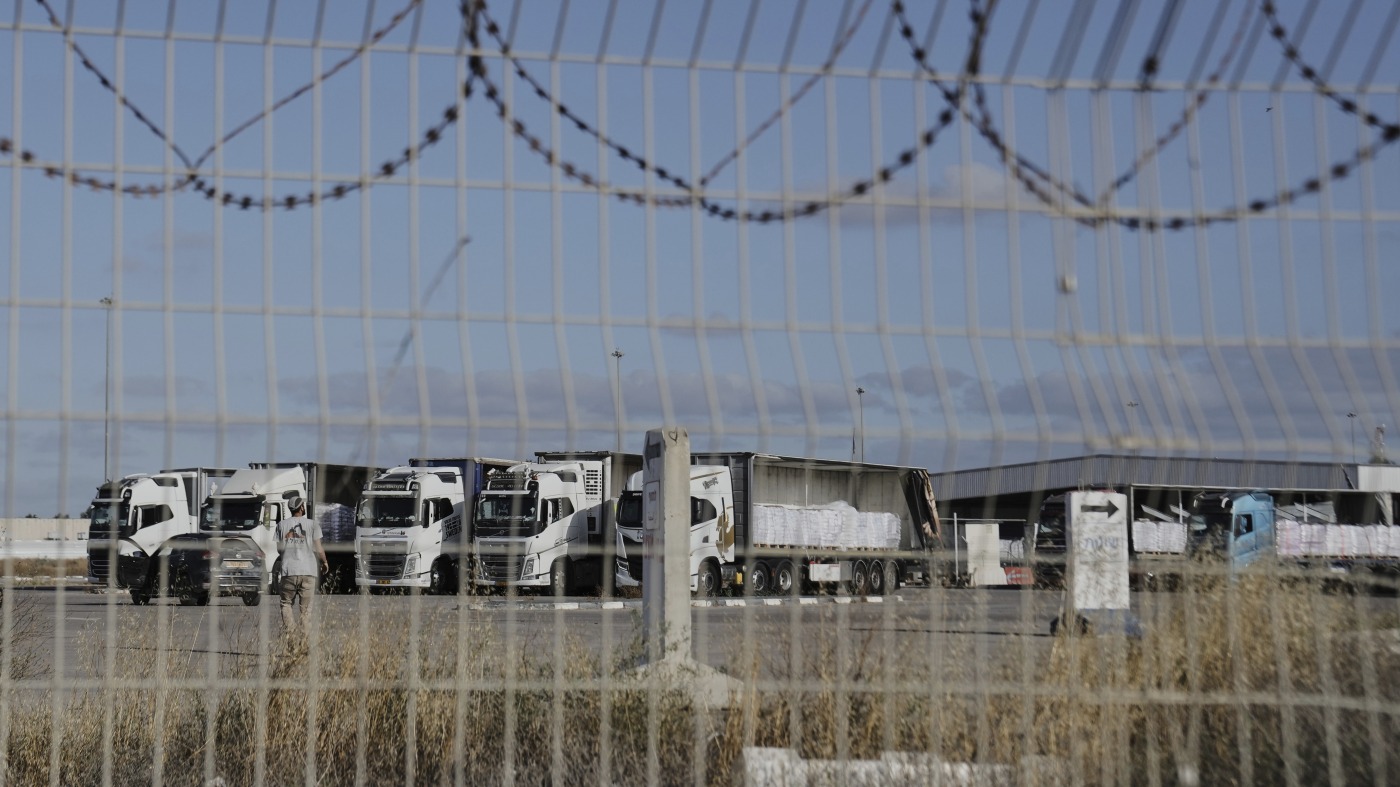The Gaza Blockade Crisis: Vermont Senators’ Call for U.S. Pressure on Israel to End Humanitarian Catastrophe
The ongoing conflict between Israel and Gaza has resulted in a devastating humanitarian crisis, particularly exacerbated by a near three-month blockade imposed by Israel that restricts food, medicine, and other essential aid supplies. This standoff has sparked significant concern and urgent calls for intervention by U.S. lawmakers, most notably Senator Peter Welch of Vermont. This report examines the various dimensions of this blockade, its impacts, the political responses within the U.S., and the potential pathways toward resolving the crisis.
—
Context of the Gaza Blockade and Humanitarian Impact
Since late 2024, Israel has enforced an extensive blockade on Gaza, limiting access to vital humanitarian aid. This measure, framed as part of Israeli security operations following hostilities involving Hamas, has triggered what many describe as a catastrophic humanitarian situation. Reports indicate that nearly half a million Palestinians in Gaza now face acute hunger, with food shortages compounded by limited access to medical supplies and healthcare services. According to Gaza’s Health Ministry, recent military escalations have resulted in thousands of civilian deaths, further deepening the crisis.
The blockade’s consequences have led to international outcry, with several senators decrying the blockade as unacceptable and calling for urgent remedial action to prevent worsening civilian suffering.
—
Vermont Senator Peter Welch’s Advocacy for Ending the Blockade
Senator Peter Welch stands out with his consistent, vocal demand that the U.S. government—specifically the Trump administration—apply diplomatic pressure on Israel to lift the blockade. Welch describes the blockade as “catastrophic,” emphasizing severe consequences on children and civilians trapped in Gaza. He insists that the continuation of this siege is unsustainable and morally troubling.
Welch, alongside Senators Michael Bennet and a bipartisan coalition of 28 senators, has introduced a resolution urging the Trump administration to deploy all available diplomatic tools to end the Israeli blockade. This legislative move highlights a growing bipartisan acknowledgment in the Senate that humanitarian crisis management in Gaza must become a priority in U.S. foreign policy.
—
Broader U.S. Political Landscape: Diverse Senate Opinions
The U.S. Senate shows a range of responses to the Gaza conflict and the blockade:
– Democratic Senators and Progressives: Figures such as Senator Bernie Sanders have positioned themselves as prominent critics of the blockade and Israel’s military strategy against Hamas. Sanders calls for immediate humanitarian pauses and ceasing aggressive war tactics, while warning of political backlash in the U.S. due to the ongoing civilian toll.
– Republican Senators: Some Republicans, notably Senator Lindsey Graham, have dismissed proposals like Trump’s plan to “take” Gaza or forcibly resettle Palestinians, arguing instead for different approaches or alternatives involving Arab states. Graham sees Trump’s discourse as initiating necessary conversation but expresses skepticism regarding specific plans.
– Mixed Reactions to Trump’s Gaza Plan: President Donald Trump has publicized bold proposals, such as the U.S. taking ownership of Gaza and creating a “freedom zone.” These ideas have been met with both criticism and cautious interest. Critics argue such proposals ignore the complex humanitarian and political realities on the ground, while supporters propose that fresh U.S. involvement might lead to stabilization.
—
Humanitarian Implications and International Concerns
The blockade’s humanitarian fallout extends beyond food and medicine scarcity. The siege has severely impacted infrastructure, including hospitals, water systems, and electricity, which are all vital during wartime. International organizations, including the United Nations, have repeatedly labeled the situation as catastrophic, warning about escalating famine and health crises.
Furthermore, reports describe growing frustration among U.S. allies and Arab states with the current impasse, hoping to see an alternative resolution emerge, possibly through diplomatic negotiations. Some U.S. senators anticipate that Arab nations may push for more pragmatic solutions in the near future.
—
Diplomatic Approaches and Ceasefire Negotiations
At the diplomatic level, ongoing but fragile talks occur in venues such as Doha, Qatar, involving Israel, Hamas, and mediating countries. While some steps such as hostage releases offer glimmers of hope, the negotiations remain stalled over final terms, including ceasefire agreements and the lifting of blockades.
U.S. policy has vacillated between firm support for Israel’s security measures and calls for humanitarian relief. Some prominent senators urge the administration to engage more assertively in pressing Israel for access to Gaza and to facilitate the resumption of aid.
—
Challenges and Complexities
Several factors complicate efforts to end the blockade and resolve the Gaza crisis:
– Security Concerns: Israel’s justification for the blockade centers on curbing Hamas’ militant capabilities and preventing weapons smuggling, a challenge requiring nuanced security assurances.
– Political Fragmentation: Internal divisions within the U.S. Congress, Palestinian factions, and Israeli politics complicate consensus-building.
– International Law and Ethics: Questions about the humanitarian legality of blockades under international law contribute to widespread debate.
– Media and Public Opinion: Shifting perceptions in the U.S. and globally about humanitarian costs influence political will.
—
Conclusion: The Path Forward
The Gaza blockade represents a critical humanitarian and diplomatic sore point, demanding urgent attention. Vermont Senator Peter Welch’s persistent calls for the Trump administration to pressure Israel underscore a growing recognition that political rhetoric must translate into meaningful diplomatic action.
Resolving this crisis will require a balanced approach—one that secures the region against violence while prioritizing the humanitarian needs of Gaza’s population. The involvement of the United States, through measured pressure and facilitation of ceasefire and aid negotiations, could be pivotal in breaking the cycle of suffering.
In the shadow of continued conflict, the voices urging an end to the blockade remind policymakers and the global community of the dire stakes at hand: safeguarding human lives and fostering conditions for durable peace in one of the world’s most volatile regions.


